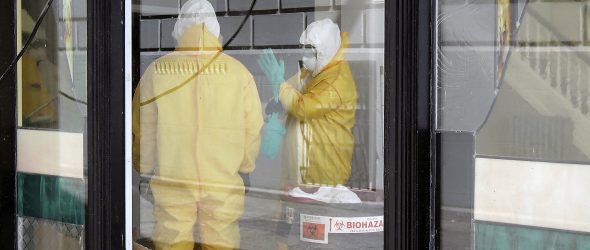San Francisco’s health department confirmed Wednesday that the city was administering alcohol, tobacco, medical cannabis and other substances in an effort to prevent a handful of homeless people quarantined or isolating in city-leased hotels from going outside to get the substances themselves.
The hotel residents are also apparently receiving medications such as buprenorphine or methadone to tamp down heroin cravings. It’s all part of a widely used “harm reduction” approach to helping addicts stay inside and curb the spread of the novel coronavirus while coping with the loss or reduction of their core drugs.
News of the health department’s efforts was first reported by KTVU-TV.
The city-rented hotels have been reserved for individuals who either have COVID-19 or are at heightened risk of catching it, and who have no space of their own to safely self-isolate or quarantine. And some of those individuals have substance-abuse issues or are already on a methadone regimen.
The city’s health department is doing what it can to help those individuals through the duration of their self-isolation or quarantine period, said Jenna Lane, a spokeswoman for the Department of Public Health.
“They’re doing San Francisco a great service by staying inside,” Lane said. “We’re saying, ‘we’re doing what we can to support you staying inside and not have to go out and get these things.’” The health department is also making clinicians and social workers available to anyone who wishes to begin addiction treatment while under DPH’s supervision in the hotels.
No taxpayer money was being used to administer the substances to hotel guests, Lane said, only private donations. There are around 270 people in city-leased hotel rooms who are waiting out self-isolation or quarantine periods. Those receiving substances from the health department represent a subset of that population. Other rooms have been set aside for vulnerable homeless people who may not require COVID-19 isolation or quarantine.
Eleven of those under isolation and quarantine have received alcohol from the health department and around 27 have received tobacco, Lane said. The health department helped five people coordinate delivery of medical cannabis to their hotels.
The department is administering doses of methadone to people who already have a prescription for the drug.
Alcohol abuse, which is widespread among the city’s homeless population due in part to its easy availability, is also a concern. So health department workers are calculating how much alcohol a hotel guest needs to stave off the effects of mild withdrawal.
“For those guests, the DPH medical staff are calculating the minimum medically appropriate amounts of alcohol and distributing it with meals,” Lane said. “Alcohol withdrawal is the only one you can die from.”
These harm reduction based practices, which are not unique to San Francisco, and are not paid for with taxpayer money, help guests successfully complete isolation and quarantine and have significant individual and public health benefits in the COVID-19 pandemic.
— SFDPH (@SF_DPH) May 5, 2020
But one drug counselor in the city has trouble with the cannabis and liquor being handed out.
“I have it from a pretty reliable source that weed and booze are being given to people in the hotels and I have a real problem with that,” said Thomas Wolf, a case manager who works with addicts in San Francisco. “There’s an ethical issue there. Alcohol kills more people than any other drug. And I understand the risks of having people detox in hotel rooms, but my understanding is the people who are quarantined in the hotels can leave for 30 minutes for essential services.
I just found out that homeless placed in hotels in SF are being delivered Alcohol, Weed and Methadone because they identified as an addict/alcoholic for FREE. You’re supposed to be offering treatment. This is enabling and is wrong on many levels. @SF_DPH @sfbos @LondonBreed
— T Wolf (@MyTwolffamily) May 2, 2020
“So if they have to get what they think they need, that’s what they should do. But don’t deliver it to them,” he said.
He also pointed out that while marijuana is legal in California, it is illegal under federal law, which might put the Federal Emergency Management Agency funding for some of the hotel costs in jeopardy.
“We want them to stay inside, but man, you’ve got to draw the line somewhere and ask for more accountability,” said Wolf, who was a homeless addict before cleaning up years ago and becoming a counselor. “Don’t be enabling people.”
Santa Clara County is also using a harm reduction approach in its hotels, administering medications to keep addicts stable, county spokesman Matt Wilson said.
Dominic Fracassa and Kevin Fagan are San Francisco Chronicle staff writers. Email: dfracassa@sfchronicle.com, kfagan@sfchronicle.com Twitter: @dominicfracassa @KevinChron


